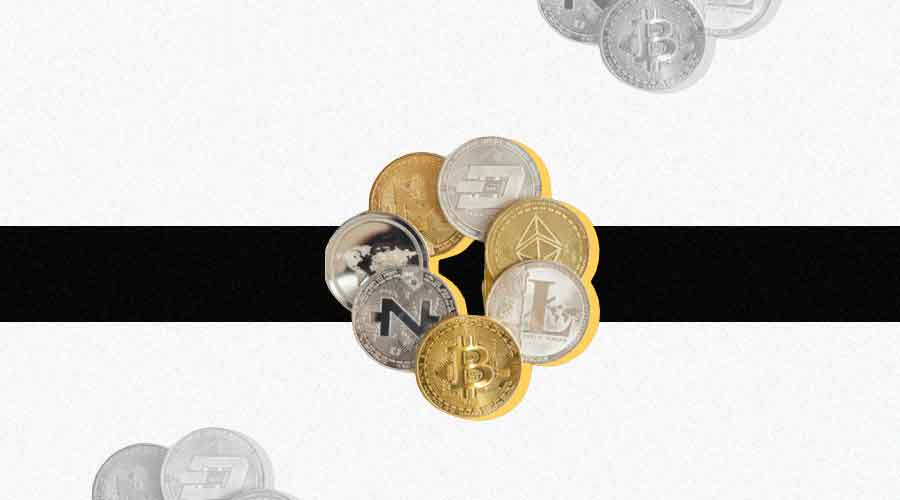 Altcoins Ascending: Ethereum’s Potential Challengers Empower the Revolution
Altcoins Ascending: Ethereum’s Potential Challengers Empower the Revolution
In the ever-evolving landscape of cryptocurrencies, Ethereum has long stood as a beacon of innovation. However, the realm of digital assets is witnessing a dynamic shift, with a cohort of altcoins emerging as formidable contenders for the coveted title of an “Ethereum killer.” This exploration unveils the top 10 altcoins that stand poised to challenge and potentially surpass Ethereum’s dominance. From cutting-edge scalability solutions to groundbreaking governance structures, each of these altcoins contributes a unique perspective to the narrative of decentralized finance and blockchain technology. Join us on this journey as we delve into the potential successors to Ethereum’s throne, shaping the future landscape of cryptocurrency and pushing the boundaries of innovation.
1. Binance Coin (BNB): A Multifaceted Ecosystem
Binance Coin, native to the Binance exchange, has evolved beyond a mere utility token. With the Binance Smart Chain (BSC), BNB facilitates smart contract functionality and decentralized finance (DeFi) applications. Its low transaction fees and high throughput make it a compelling Ethereum alternative.
2. Cardano (ADA): Poised for Smart Contract Dominance
Cardano, founded on a scientific philosophy, aims to provide a secure and scalable platform for the development of smart contracts and DApps. With its unique consensus algorithm, Ouroboros, and ongoing network upgrades, Cardano is positioned as a strong contender for decentralized applications.
3. Solana (SOL): High-Speed Blockchain
Solana has gained attention for its impressive transaction speeds and low fees. Designed for high-performance decentralized applications, Solana utilizes a unique proof-of-history mechanism to enhance scalability. Its rapid transaction finality and growing ecosystem contribute to its Ethereum competitor status.
4. Polkadot (DOT): Interoperability Pioneer
Polkadot focuses on interoperability, allowing different blockchains to seamlessly connect and share information. With its relay chain and parachain architecture, Polkadot aims to create a decentralized and interoperable network, positioning itself as a key player in the race to challenge Ethereum.
5. Chainlink (LINK): Bridging Smart Contracts with Real-World Data
Chainlink addresses a crucial aspect of smart contracts by providing decentralized oracle solutions. LINK connects smart contracts with real-world data, enhancing their utility and enabling a wide range of applications, making it an essential component in the decentralized finance (DeFi) landscape.
6. Avalanche (AVAX): Scalability and Customization
Avalanche distinguishes itself with its Avalanche consensus protocol, offering high throughput and scalability. The platform enables the creation of custom blockchain networks (subnets) tailored to specific needs, making it an attractive option for developers seeking flexibility and efficiency.
7. Polygon (MATIC): Enhancing Ethereum’s Scalability
Formerly Matic Network, Polygon addresses Ethereum’s scalability challenges by providing layer 2 scaling solutions. With its proof-of-stake consensus mechanism, Polygon enhances transaction speed and reduces fees, offering a seamless experience for decentralized applications.
8. Tezos (XTZ): Self-Amending Blockchain
Tezos differentiates itself through on-chain governance and a self-amending protocol. Its community-driven approach allows for seamless upgrades without hard forks, fostering innovation and adaptability. Tezos positions itself as a sustainable and evolving blockchain ecosystem.
9. VeChain (VET): Bridging Blockchain and Real-World Applications
VeChain focuses on bridging blockchain technology with real-world applications, particularly in supply chain management. Its emphasis on traceability and transparency makes it a compelling choice for industries seeking blockchain solutions beyond the realm of digital assets.
10. Algorand (ALGO): Fostering a Borderless Economy
Algorand aims to create a borderless economy with its pure proof-of-stake consensus algorithm. Designed for scalability and efficiency, Algorand supports smart contracts and decentralized applications, presenting itself as a contender in the race to challenge Ethereum’s dominance.




